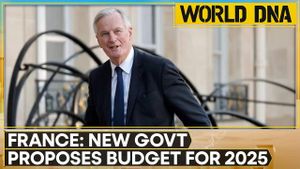The Thai government is placing ambitious tourism goals at the forefront of its 2025 economic strategy, aiming for 3.5 trillion baht ($104 billion) in revenue by enhancing foreign market appeal through extensive promotions and year-round events.
At the launch of the "Amazing Thailand Grand Tourism and Sports Year 2025," held yesterday, Tourism and Sports Minister Sorawong Thienthong asserted confidence in recovery, stating the target builds on pre-pandemic figures recorded back in 2019. Even though Thailand's tourism numbers lagged behind Japan last year, Thienthong maintained the kingdom's focus should be on surpassing its own achievements rather than competing with other nations.
Prime Minister Paetongtarn Shinawatra's government has set its target for the Tourism Authority of Thailand (TAT) at 3 trillion baht, with initiatives including increasing flight capacity and introducing online immigration forms to facilitate inbound tourism. TAT's marketing efforts will follow five major themes: Grand Festivity focusing on cultural events; Grand Moment highlighting must-visit regions; Grand Privilege offering exclusive promotions; Grand Invitation encouraging celebrity engagement; and Grand Celebration marking diplomatic anniversaries with multiple nations.
Key events to draw visitors will include the "Maha Songkran: Saneh Thai Carnival" scheduled for April and the "Amazing Thailand Love Wins Festival" set for June, coinciding with the recent legalization of same-sex marriage.
Although the tourism revenue goal appears ambitious, some experts express doubts. Thanet Supornsahasrungsi, president of the Association of Chonburi Tourism Federation, remarked on the current absence of Chinese tour groups, previously significant contributors to the Thai tourism sector. With China's economic uncertainties continuing, the government plans to reinvigorate the domestic tourism market through measures like the "We Travel Together" subsidy campaign.
On top of tourism strategies, Prime Minister Shinawatra is promoting Thailand's identity as the "Kitchen of the World"—a concept she presented during her participation at this year's World Economic Forum (WEF) held in Davos. This endeavor ties directly with food security initiatives, whereby Thailand aims to provide food preservation solutions to countries facing food scarcity.
Emphasizing the importance of innovation and adapting to climate changes, Shinawatra highlighted the need for farmers to embrace new technologies to improve distribution and resilience. She pointed out the significance of developing both man-made and natural attractions to stimulate economic growth, as existing tourist spots alone can't suffice.
The Prime Minister also addressed future industries like semiconductors, stressing the government’s commitment to fostering investments within this sector. Her focus extends to energy costs and commitments to clean energy to maintain competitiveness, aiming for carbon neutrality by 2050.
Gender equality remains at the forefront of her agenda, with Thailand positioned third globally for female CEOs. Despite this achievement, the Prime Minister acknowledged the underrepresentation of women within the public sector and reinforced the need for inclusive opportunities. She proudly affirmed her government's commitment to fostering equality through recent same-sex marriage legislation.
The Prime Minister's initiatives also include the "One District, One Scholarship" program, which aims to expand educational opportunities for students from rural areas. Following the success of the 30 Baht for All healthcare initiative, which provides citizens access to medical care nationwide, affordable housing remains another governmental priority with the "Homes for Thais" initiative aimed at enhancing social stability.
Through the new television program, "Empowering Thais with PM Paetongtarn," the Prime Minister seeks to strengthen government transparency. The first broadcast revisited achievements, such as healthcare expansions, economic measures, and initiatives tackling environmental issues like PM2.5 air pollution. Plans for more stringent anti-burning laws and the promotion of public transportation were discussed to mitigate air quality threats.
She also outlined international trade advances, including the signing of a free trade agreement with the European Free Trade Association (EFTA) at the WEF aimed at bolstering export opportunities for small and medium enterprises. This reflects Thailand’s strategic aspirations to strengthen its foothold within global trade networks.
Shinawatra reiterated her commitment to responding to criticism constructively and remaining focused on policies benefitting the public. She expressed hope the new program will serve as bridges connecting the government and its citizens, inviting feedback on policies and their implementations.
With plans and policies poised to shape Thailand's economic and social framework, 2025 is positioned as pivotal year, with ambitions of rejuvenation following challenging economic times caused by the pandemic, aiming for sustainable growth and inclusivity.



